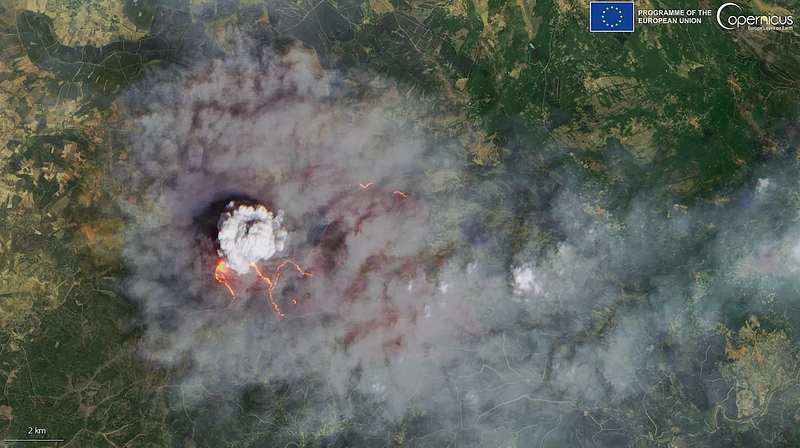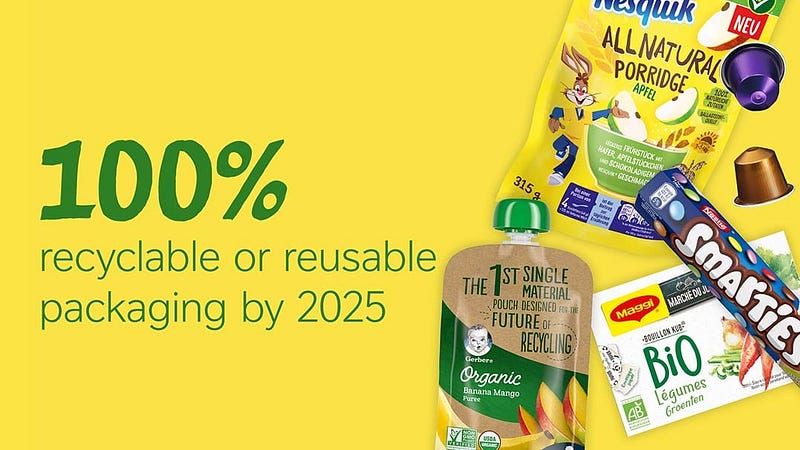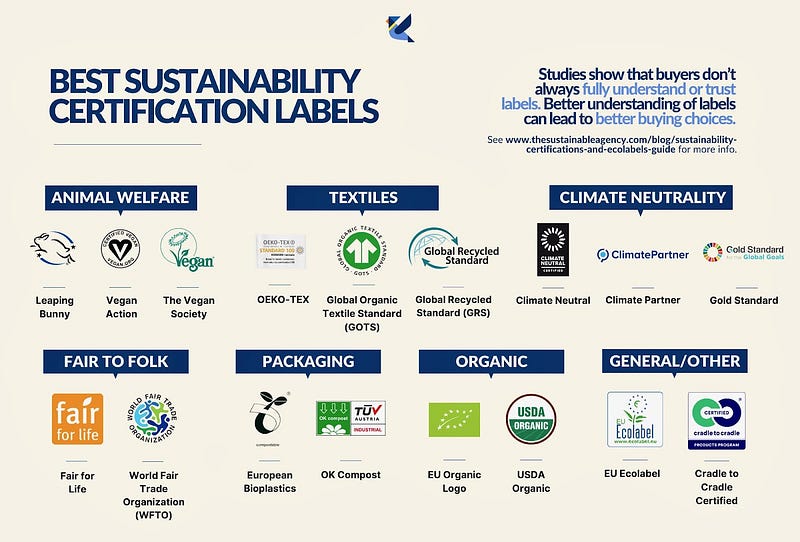Eco-Capitalism — As Green As It Seems?
Unless you’ve been living under a rock, climate change is no new topic of discussion in our generation. Our excessive carbon emissions are…
Unless you’ve been living under a rock, climate change is no new topic of discussion in our generation. Our excessive carbon emissions are causing catastrophic changes to the natural environment: hurricanes, flooding, melting ice caps and biodiversity loss — we’ve heard all about it. We dream of a world where economic growth and sustainability live alongside each other happily ever after. With that aspiration, our beloved companies and businesses are promising ‘eco-friendly’ initiatives to make the world a greener place, but how truthful are they being?
Our Climate Crisis
Since the 1900s, carbon emissions from fossil fuels have been skyrocketing. From 1970 to 2011, 78% of the total greenhouse gas increase can be blamed on emissions from fossil fuel combustion and industrial processes. The 90% increase in CO2 emissions since 1970 is not the only cause for climate change: Deforestation and agriculture are next in line in being the largest contributors to the problem.

These undesirable conditions are fuelling catastrophic weather disasters around the globe. In coastal regions alone, hurricanes and flooding become big threats. To state a few of the most recent catastrophes:
The latest Category 4 Tropical cyclone hitting Florida, Hurricane Ian, causing at least 137 fatalities and damages estimated to be $67 billion.
The ongoing flood in Pakistan caused by heavier than usual monsoon rains and melting ice caps have caused 1,717 fatalities since June 14 2022. 10 million children are in need of immediate, lifesaving support and many individuals are at risk of waterborne diseases, drowning and malnutrition.
Europe experienced its hottest summer this year, reaching a record high temperature of 40.3°C in the UK and 47°C in Portugal. The region suffered from the worst drought conditions it’s ever encountered in 500 years.
Flooding in Western China throughout July affected over 6,200 people, killing 16 individuals. The flooding was caused due to heavy rains, triggering landslides and rerouting of rivers which flooded nearby villages.
Storm Eunice hit Europe causing killing 16 individuals and over $406 million worth of damage. The storm reached top speeds of 122 mph, similar to that of the Great Storm in 1987.
Climate change is progressively worsening and the world is beginning to see the effects. There is no denying these catastrophes are caused by inconsiderate, selfish, human actions. Alongside our poor choice of energy sources and use of fossil fuel sourced power, things like food waste, dietary choices (excessive beef consumption), excessive electricity use, and transportation choices all contribute to Global Warming.
Environmentalism Today
Now more than ever is environmentalism a big part of our lives. It is the ‘new cool’ to save the planet and be ‘eco’. As the news blares headlines on the most recent devastating crises, and protests on climate justice storm their ways to parliaments around the world, we are all in demand for greener solutions. The truth of climate change is unfolding itself to the public where governments and corporations can no longer hide their lucrative actions.
Until recently, it has been clear that world leaders and governments do not prioritise the wellbeing of the planet. Though few have promised agreements and made laws to assist the shift to be greener, many continue to disregard their environmental responsibilities. Most recently, Sweden’s new government has shown a negative response to its environmental ministry. Unveiling his new cabinet on September 19, 2022, Prime Minister Ulf Kristersson did not dedicate a definitive environmental ministry. For the first time in 35 years, Sweden will not have a dedicated environmental ministry: “It is impossible to describe more clearly how little this government values the environment and the climate. This is a historic decision with devastating consequences for environmental issues” states Per Bouland, Leader of Swedish Greens.

As for corporate companies, it is no surprise that they continue to choose the most cost efficient ways to produce goods without consideration of the environment. Corporate companies often hide their mischievous acts behind Greenwashing and misinformation. Information and examples of the stated points are covered below as we progress with the article.
Campaigns and awareness regarding the protection of our environment and leading a sustainable lifestyle can be heard about from classrooms to billboards. We are encouraged to consume less and consume clean, reducing our carbon footprint as much as we can. Thanks to advanced technology in today’s day and age, this new wave of environmentalism is transforming the way we tackle environmental issues.
Eco-capitalism — Its Role in Business and Greenwashing
Eco-capitalism, as per Collins Dictionary, can be defined as ‘the theory or practice of a free-market economy in which natural resources are regarded as capital and profits are partially dependent on environmental protection and sustainability’. Today, eco-capitalism or green-capitalism has become a necessary integration in businesses and major companies. Everyone wants to choose the most environmentally friendly solutions on the market. Therefore, corporations must find ways to provide sustainable products to its consumers or they risk a loss of demand.
Since there is a high demand for these sustainable solutions, producers have begun wrapping their products with green packaging and eco-centric imagery, slapping misleading labels and certifications as a way to manipulate consumers into thinking they are doing good. This is known as greenwashing.
Greenwashing is the deceitful act whereby companies claim their products are more environmentally friendly and have greater positive environmental impacts than they actually do. Thus, reflecting a ‘feel good’ factor on consumers when they are greenwashed into purchasing products they think are helping the environment. Brands will often emphasise claims like ‘made from organic ingredients’ or ‘recycled packaging’ while only a small portion of their products actually fulfil these statements.
Nestle
Companies such as Nestle have been guilty of partaking in this manipulative Greenwashing scheme. An example of their Greenwashing comes under their bottled water. The company once made a statement that its bottled water was “the most environmentally responsible consumer product in the world”, which sparked controversy with a coalition of environmental groups in Canada as plastic bottles are nowhere near being an environmentally friendly product. In 2000, Nestle reinforced that accessible drinking water was a basic human right, while at the same time draining aquifers that it controls to its limits without care for environmental concerns of sustainability.
Nestle promised a commitment of 100% reusable and recyclable packaging by 2025. This claim was of course met with applause and excitement from consumers to see the improvements the company was willing to make for the planet, but Greenpeace campaigner Jefferson Chua had more criticising comments: “Nestle doesn’t care about people’s wellbeing–not when it persists in the sordid practice of burning the evidence of their pollution. Nestle is pretending that it’s doing good, but in reality, they haven’t stopped transferring the burden of pollution onto people, while they rake in massive profits delivered by a destructive business model. We’re calling on Nestle to do the right thing and start massively reducing their plastic production.”
The most evident way to achieve their 100% reusable and recyclable packaging would be to decrease plastic production. This would reduce the amount of virgin plastic entering its overall production cycle. Instead, Nestle is resorting to burning its plastic waste as a solution. This counterproductive motion would only release more toxins endangering wildlife, human health and the environment.
Nestle’s ‘plastic neutrality’ program was devised to seem more carbon-neutral. As anticipated, this motive was later called out for being misleading. Plastic neutrality means for every amount plastic is created, an equal amount of plastic is retrieved from the environment to be disposed of sustainably — by recycling or repurposing. However, this system merely shifts the producer’s environmental responsibilities onto others — particularly those in the Global South, thus making Nestle seem more progressive towards their ‘eco promises’.
Nestle, Coca-Cola and PepsiCo were all accused of zero progress in reducing their plastic waste. 15,000 volunteers from the Break Free From Plastic Brand Audit 2020 collected over 340,000 pieces of plastic across 55 countries, 63% of which was clearly marked with consumer labels. At least 8,600 of these pieces were clearly branded by Nestle.
What can we do?
Now you must be thinking, “how could I possibly lead a sustainable lifestyle if all labels are being deceitful?”. There are a few approaches individuals can use to avoid the greenwashing scheme:
Sustainable Certifications
Sustainable certifications are third party voluntary guidelines which demonstrate a producer’s commitment to positive environmental, social, ethical and food safety practices. These sustainability certifications can be extremely useful in sifting out the most obvious green-washers. Some trusted sustainability certifications include PETA, Fairtrade International, Rainforest Alliance, ProTerra, Forest Stewardship Council, and UTZ.
Look for Irrelevant claims
Labels can make state facts on their packaging that are true, but are not necessarily relevant. One example is the common “CFC-free” label. CFCs have long been banned by law, therefore although the statement is true, it is not an indication of eco-friendly practices and sustainably.
Shop with Intention
Conducting your own research on brands prior to purchasing could assist you in making more environmentally conscious purchases. Along with this, purchasing less in general is a favourable practice in leading a more sustainable lifestyle.
Large corporate companies undoubtedly produce a majority of our necessary daily products. As companies with global consumers and ever growing profit, it is their responsibility and well within their means to provide legitimate and honest solutions to their environmentally destructive production lines. As consumers, we should continue to exercise our right to greener products, avoid deceitful greenwashed goods, and advocate sustainability as much as we can in the best interest of our planet.
[Written By: Nurrania Alfian. Edited By: Balvin Dhaliwal]





